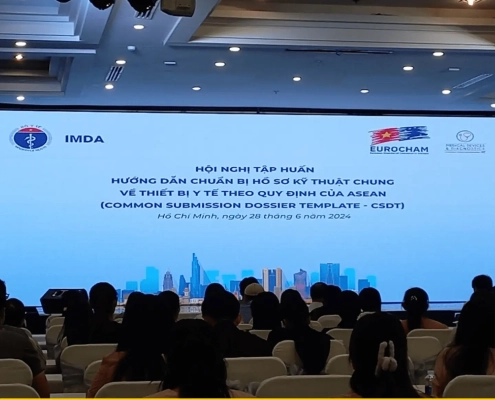Come grow with us in the US in Thailand in China in Korea in the Philippines in Taiwan in Hong Kong
Contact Us
US: +1 512 898-9222
SG: +65 8800-3197
EMAIL: Inquiry@asiaactual.com
Medical Device Risk Classification Problems in VietNam
Published on: May 13th, 2024
According to a report published on May 7th, 2024, distributors have been caught misrepresenting IVD and Medical Device risk classification in the regulatory approval process to gain early market access and participate in public hospital tenders.
Risk Classification Controversy: Story
A series of Rapid Test products were awarded in a tender by Dong Thap General Hospital. It was later discovered that the devices were misclassified as Class B IVDs during the regulatory review process. According to Official Dispatch No. 2098/BYT-TB-CT, IVDs for blood testing aren’t classified as A or B but rather C or D. Being classified as C or D also entails a circulation permit or import permit approved by the MoH. Thus, the winning bidders are in violation of the regulations. It remains to be seen what the consequences will be.
In the bidding process, the distributor usually cross checks the Medical Device or IVD with the Ministry of Health (MoH) to ensure it has registration information and has not been revoked. If it passes through, then the only way to for the distributor to be disqualified after the fact is if an official recall decision is made.
Why the Risk Classification Troubles?
The shortage of risk class C and D medical devices has created a pressing issue for manufacturers, distributors, and hospitals. With their Market Authorization applications stalled in a queue of 6,000 at the Ministry of Health, the situation has become increasingly desperate. The congestion for C/D class devices likely stems from the process for licensing requiring federal evaluation. Whereas Class A and B Devices need only a state evaluation and have a much quicker time-to-market.
The MoH has made risk classification accessible on its website, where post-inspection agencies can go to verify the classification of devices. Given that, it seems only more clear that misclassification of devices is more so a popular loophole to getting licensed and on the market for devices which would usually be classified as C or D.
Asia Actual VietNam is positioned to make market entry as efficient as possible and free of any compliance worries, regardless of device class. Please contact us for support in VietNam.
Come Grow With Us
Asia Actual specializes in helping medical device manufacturers grow their sales in Asia with experienced, bi-lingual commercial and regulatory experts on the ground in each market.
Contact Asia Actual today with any questions on how Decree 07/2022 may affect your business.






